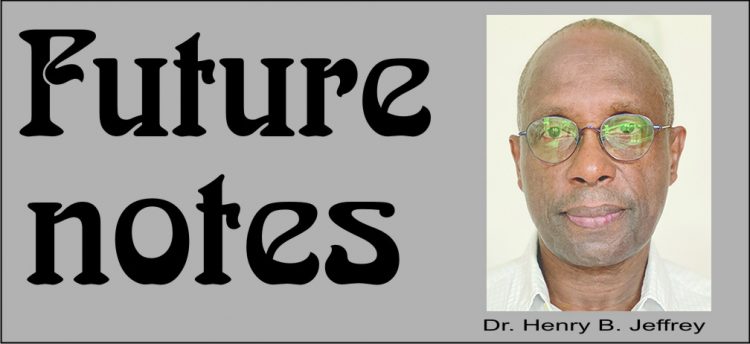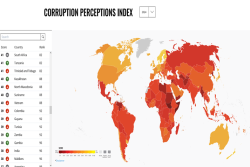 A friend of mine told me that I was out of touch with the national mood: ‘people voted and they want to know who won’. I had to agree that such might well be the general mood, but I refuse to accept that it necessarily should be mine. I believe that it would be a great pity and a fundamental error if the current crisis is again allowed to fester without our being able to extract from it concessions that will lead to a major overhaul of the way this country is governed.
A friend of mine told me that I was out of touch with the national mood: ‘people voted and they want to know who won’. I had to agree that such might well be the general mood, but I refuse to accept that it necessarily should be mine. I believe that it would be a great pity and a fundamental error if the current crisis is again allowed to fester without our being able to extract from it concessions that will lead to a major overhaul of the way this country is governed.
Crises usually provide some of the best opportunities for finding solutions to entrenched problems and we have lost good ones. Eusi Kwayana and Moses Bhagwan recently reminded us that following the breakdown of constitutional talks in London in the early 1960s a co-leadership proposal similar to the one that at present exists in Northern Ireland and that former president Bill Clinton referred to as ‘a work of genius that’s applicable if you care at all about preserving democracy’ was placed on the table; was accepted by Forbes Burnham but rejected by the PPP (SN: 10/03/2020). By the end of that crisis Jagan himself reported in his West on Trial: ‘The toll for the 1964 disturbances was very heavy. About 2,668 families involving approximately 15,000 persons were forced to move their houses and settle in communities of their own ethnic group. The large majority were Indians. Over 1,400 homes were destroyed by fire. A total of 176 people were killed and 920 injured.’
The political strife that erupted after the 1997 elections gave rise to well-meaning constitutional reform, but another opening to change the winner-takes-all system was not taken and along the way to our present problem over 425 (some say 1,431) persons lost their live in ethnic- related political violence and one has already died in the current confrontations. So I will not again prioritize the maintenance of our present winner-takes-all system of governance: my prioritization is reserved for opportunities to overthrow it and I hope that the present crisis ends with an agreement does just that.
A short piece ‘Why Does it take a Crisis to Change’ in Covisioning argues that ‘Humans are master rationalizers regardless of the level of education achieved. .. It takes a crisis to bring the truth of a situation to light. A bad result can break down the walls of your defensive brain. You then look back and see the errors in your thinking. Hopefully, you commit to making a change based on what you learned from your mistakes’ (https://arrow.tudublin.ie/cgi/ viewcontent.cgi?article=1128&context=buschmarart). This appears quite true: confronted by the reality of a Burnham regime, Cheddi Jagan was later to become one of the staunchest supporters of shared governance.
I too have indulged in unstudied positions that placed the Westminster type constitutional need for a substantial parliamentary opposition ahead of the persistent loss of life: I was imprisoned by an inappropriate political theory. The large number of parties that participated in the 2020 elections suggests that there will always be levels of opposition depending upon how the electoral process is configured. Furthermore, in the present information and communication context in which all manner of groups seek to take more direct control of their existence, i.e. put an end to their own social and political alienation, there appears a surfeit of political opposition with some feeding off ‘fake news’ to negatively disrupt the normal political process.
What is also ill-understood is that at its foundation, the present political crisis is about a deep level of alienation that cannot be overcome and indeed that becomes further entrenched by the extant political processes. As such, particularly in the modern communications era, the problem cannot be solved by a marginal or even reasonably sizable winning of elections that excludes any reasonably sized definable group. ‘If any generalization about institutional design is sustainable it is that majoritarian systems are ill-advised for countries with deep ethnic, regional, religious, or other emotional and polarizing divisions. Where cleavage groups are sharply defined and group identities (and intergroup insecurities and suspicions) deeply felt, the overriding imperative is to avoid broad and indefinite exclusion from power of any significant group’ (Future Notes SN: 26/2/2020).
Given its ethnic nature, Guyana may have long expressed these disruptive tendencies but particularly since the fall of communism and the unchecked internationalization of capitalism and its resultant inequalities, alienation expressed as nationalism and ethnicity has become rife and the political processes, even in what are considered politically developed countries, can no longer contain it. Crisis helps to undermine the above intellectually unsustainable standpoints and commonplace intuitive reactions but apparently it needs help!
According to one standpoint that appears appropriate to Guyana’s situation, crisis situations require political entrepreneurs with the correct orientation if the necessary changes are to be made. As John Hogan and Sharon Feeney hypothesized, new ideas may be developed by various change agents ‘but in order for any of these ideas to enter the institutional environment, one specific agent of change must be present: the political entrepreneur. Without political entrepreneurs, ideational change, and subsequent policy change, would not occur’ (https://arrow.tudublin.ie/cgi/viewcontent. cgi?article=1128 &context=buschmarart).
It does appear that this is precisely where the problem in Guyana lies. Most of us have been steeped in the majoritarian political culture of our colonial masters: a culture that is ideally suited for more-or-less homogenous societies where there are shifting policy alliances. It was not until 2002 that those around former president Desmond Hoyte were able to convince him of the need for power sharing and this is also the major reason so many in Guyana decry the fact that people vote ‘race rather than on policy.’ Since individuals have the right to vote how they want and over many decades they have shown a tendency to vote race, one would have thought that the easier thing to do would be to establish a system of governance that is more in keeping with how the population actually vote.
Last week I argued that in situations of ethnic political conflict those in the majority usually show preference for a winner-takes-all governance system and it is those in the minority that are usually in support of change. However, a content analysis of the daily papers would indicate that the considerations above are still not widely understood even among the minority political elite; much less the broad masses they lead. Thus, the former has a weak attachment to shared governance and more like church men, mistakenly believe that they are morally better and more competent than the other side and will rule better and be able to bring national unity and development!
Given recent developments, by the time this column reaches the reader the immediate cause of the present political quarrel (the 2020 election results) is unlikely to have been concluded. My only hope is that the opportunity the crisis has offered for us to devise a lasting solution is not again squandered.








